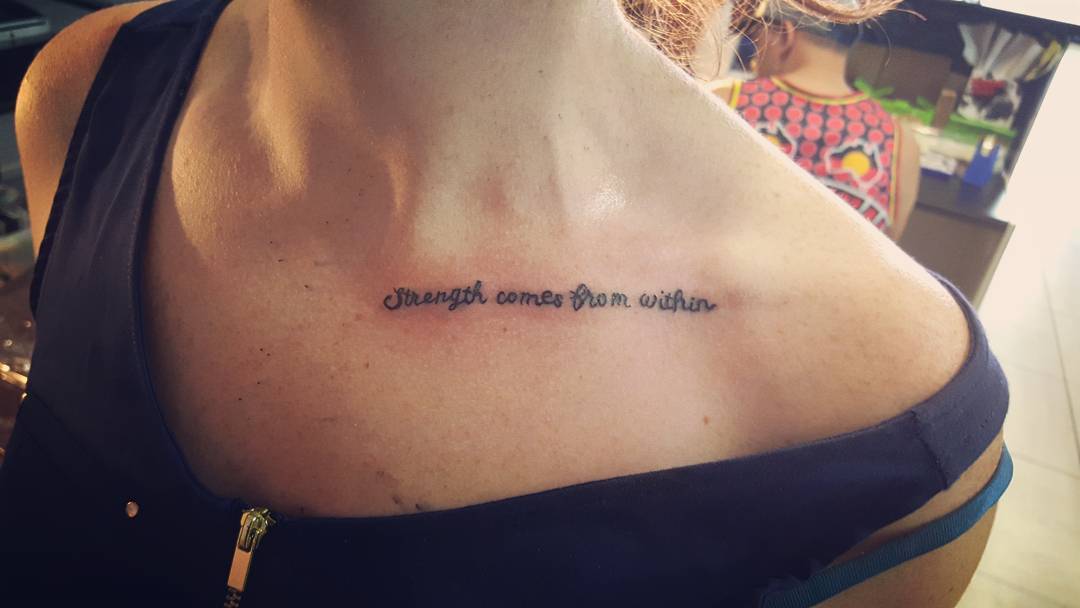- Two Places In Men We Reaped
- The Men We Reaped By Jesmyn Ward
- The Men We Reaped Summary
- The Men We Reaped Audio
The United States of America is a country that, despite much of the relatively progress in race relations, remains gained by a history of prejudice. Even today, elements of our society have a significant impact on the life expectancy and mortality rates of African-Americans. According to Jesmyn Ward’s memoir, Men We Reaped, and researchers at Columbia University’s Mailman School of Public Health, the greatest contributing societal factors of black deaths in America are poverty, lack of education, and poor social support (237). These factors are the most significant elements that connect the deaths of the five young black men in Ward’s memoir and many deaths of other African-Americans today.
“Men We Reaped is one of the rare nonfiction books that seem destined to become a literary classic. National Book Award-winner Ward intertwines the story of her life growing up poor and black in rural coastal Mississippi with the lives of five young men she was close to - including her brother - who died within a two-year span soon after she finished college.
- According to Jesmyn Ward’s memoir, Men We Reaped, and researchers at Columbia University’s Mailman School of Public Health, the greatest contributing societal factors of black deaths in America are poverty, lack of education, and poor social support (237). These factors are the most significant elements that connect the deaths of the five.
- But Men We Reaped is breathtakingly full of despair. You can listen to six hours of Lightnin’ Hopkins or read this memoir. Either way, if you’re listening closely, you’ll need a bottle of your favorite beverage and a big box of tissues to see your way to the end. 98 likes Like see review.

Any subject. Any type of essay.
We’ll even meet a 3-hour deadline.

Of the three greatest contributing factors, poverty is the most significant. In our capitalist society, money buys happiness or at least better living conditions in general; therefore, the lack of wealth in many American “black neighborhoods,” is the leading societal factor of African-American deaths. One of the five young black men in Men We Reaped, whose name was Charles Joseph Martin, died in a car collision with a train. According to Ward, “there was no reflective gate arm at the railroad crossing. There were flashing lights and bells that should have warned of the passing train, but they didn’t consistently work, and because it was located at a crossing out in a mainly Black area, no one really cared about fixing them or installing a reflective gate arm.” Chances are, if this accident had occurred in a wealthier neighborhood, the flashing bells and lights would have worked and a reflective gate arm would probably have been installed long ago. While these are just assumptions, the concept that wealthier neighborhoods generally have utilities that are safer and more consistently updated than less wealthy neighborhoods, is not. The lack of funding creates an unsafe environment in which the likelihood of death is much greater.
In neighborhoods with a greater black population, it is common for teens to drop out of highschool. Ward’s memoir exemplifies this notion, stating “Rog dropped out of highschool in the tenth grade; it’s not uncommon for young Black men to drop out here” (26). What’s worse, is that this commonality is not only accepted, but expected. According to Ward, this systemic type of racism leads teachers and school administrators to question, “why figure out what will motivate this kid to learn if, statistically, he’s just another young Black male destined to drop out anyway?” (208). This forced lack of education has some serious side-effects. In an environment lacking education, drug abuse often becomes more common. According to Drugscope.org, “drug education, based on lessons from research, … has the potential to reduce drug misuse.” Rog, who was formerly known as Roger Eric Daniels III, died of a cocaine-related heart attack. It is difficult to live a safe and healthy life without education.
While having poor social support does not only occur in African-American societies, it is still one of the greatest contributing factors of African-American deaths. A lack of social support often leads to negative social interactions such as homicides and suicides. Men We Reaped exemplifies one of these social interactions “when someone stepped out of the bushes in front of Demond’s house and shot him” (77). Later in the memoir, another interaction is demonstrated when Ronald Wayne Lizana “shot himself in the head, and died” (177). Poor social support is the most violent of the three most significant contributing factors of Black deaths in America.
You can order professional work according to specific instructions and 100% plagiarism free.
Men We Reaped illustrates how five seemingly unrelated deaths of Black men in Delisle, Mississippi, are connected through poverty, lack of education, and poor social support. Roger Eric Daniels III died of a cocaine-induced heart attack. A lack of education and poor social support can often lead to drug abuse and drug addiction. Demond Cook was shot in the back in his own front yard. Poverty and poor social support create scenarios in which needless violence occurs. Charles Joseph Martin died in a horrific car collision with a train. Neighborhoods lacking wealth are often lacking safety as well. Ronald Wayne Eliza purposefully shot himself in the head. Depression is often caused, in part by poverty and poor social support. Joshua Adam Dedeaux was rear-ended into a fire-hydrant by a drunk driver. This death is difficult to classify into one of the three contributing factors; yet this death helps connect the five deaths together.
In truth, the poverty, lack of education, and poor social support that black neighborhoods face today are all based on one concept: the discrimination between black and white. Joshua’s collision was caused by a drunk white man in his forties. This man was not charged with vehicular manslaughter but instead charged him with leaving the scene of an accident. While the the equality gap has thinned since the ‘60s, we still struggle with the concept of equality (E.g. police brutality, the persistence of white supremacist groups). If we hope that one day we will overcome this great obstacle of discrimination, we must join together as a nation, and cleanse one other of the virus that plagues us all.

The readalong for Jesmyn Ward’s Men We Reaped is hosted by Entomology of a Bookworm, who provided these discussion questions.
1) Men We Reaped is described as a memoir. While it draws on Ward’s personal experiences, it also explores themes much larger than one woman’s life. Do you agree with this genre classification?
Absolutely, I feel like memoir is a fairly flexible category. (In contrast, I would say that the word autobiography brings more narrow expectations.) Half of the book is about Ward’s life and her family. The stories about the five men profiled in Men We Reaped are still framed around Ward’s personal interactions with them.
2) In what ways do you think Ward’s personal approach to this subject makes Men We Reaped stand out from other books that address similar issues? Did this make the book appeal to you more or less, or were you indifferent?
Ward’s book does well in evoking the struggle and depression that hounds communities that are poor and Black. Her personal stories illustrate ideas such as double-consciousness (Ward’s childhood memory of talking academics with her mother’s employer while her mother cleans the house).
Ward made the narrative choice to connect the twists and turns of each man’s life and death to the larger forces of systemic racism and injustice. I felt this narrative choice worked best in Demond Cook’s story (the man who was murdered outside his house, possibly for his agreement to testify in court). At other points, however, it felt strained and perhaps too speculative and abstract.
I was having a hard time figuring out why I was slightly disappointed in Ward’s book. Then I read author Roxane Gay’s Goodreads review of Men We Reaped which explained it well and which I’ll quote in part below:
The prose is bursting with pain and beauty and truth. This is a book everyone should read. Where it falls short is that it doesn’t do enough to rise above the grief. Ward only briefly addresses the issues of race and poverty and how they indelibly shape too many lives, particularly in the rural South. Instead, that the culprits of these men’s demise is inextricably bound to race is treated as assumption when it needs to be far more fully realized and plainly articulated.
Two Places In Men We Reaped
3) In more than one instance throughout the text, Ward writes about feeling silenced and voiceless in the face of overwhelming systems of inequality. Do you think Men We Reaped changes that position by giving her a voice?
I hope she feels that way, but her book also points out that this feeling of voicelessness is endemic in her community. I hope that her book empowers the voices of others in her hometown, especially since it’s from one of their own.
4) Though Men We Reaped is about the loss of young black male life, it is also, in many ways, about the black women left to stand witness to the lives and deaths of those in their community. How does this gendered perspective change the story of the high mortality rate among young men of color?
The Men We Reaped By Jesmyn Ward

Ward’s book certainly details the obstacles in her own life and that of her mother’s and sisters’ lives. Their roads are not easy. But the women in Ward’s life soldier on despite their wounds. It is the men who seem more fragile and endangered.
[Edited to add: I don’t have a good answer for this question.]
5) If you could ask Jesmyn Ward any one question about this book and/or the experiences she recounts within it, what would it be?

The Men We Reaped Summary
I’m curious about the reactions to her book from people in her region of Mississippi, so I would ask about that.
The Men We Reaped Audio
In my answer to the second question, I admitted that I had been a little disappointed in the book, as I would have liked to see the ideas more fully fleshed out. I still really liked reading it though. As a memoir, evoking a family, a community, a place, it is definitely worthwhile. Mississippi is the poorest state in the country. I live in the third-richest county in the country, and while poverty and racism definitely still have a presence, it is still a place of greater opportunity. So reading Men We Reaped helps inform my perspective, keeps it from being too cloistered.
